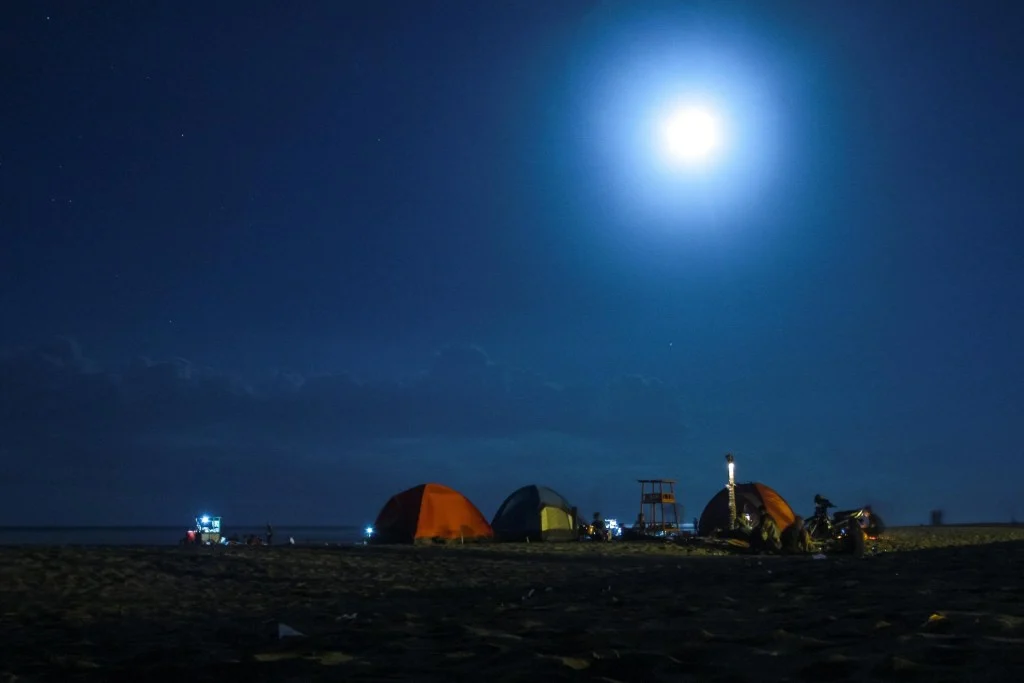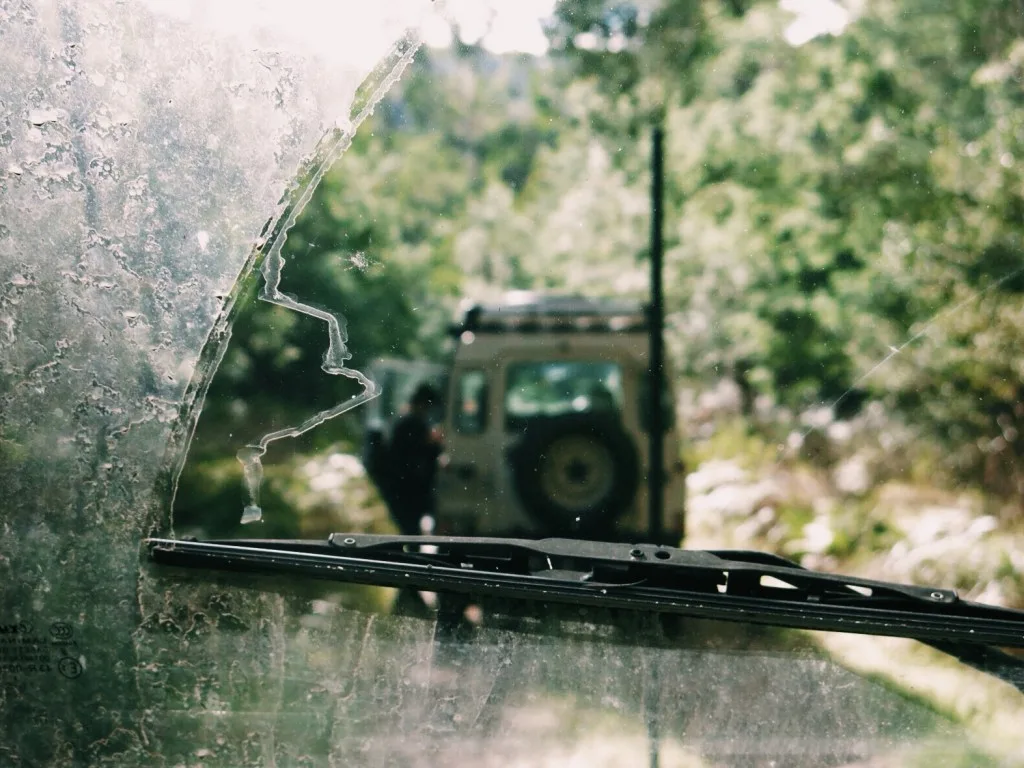What Does Backcountry Camping Mean?
Backcountry camping. Spending the night under the stars, far away from any roads or civilization? Yes, please!
This kind of camping is not for the inexperienced camper or the faint of heart, though. So, today, we’ll take a deeper look into what backcountry camping is all about.
Let’s dig in!
What Is Backcountry Camping?
Backcountry camping is camping done in the wilderness far away from roads or developed areas. Moreover, this camping style is primitive camping with no facilities, no designated campsites, and no vehicle access.
Camping in the wilderness is not a sport for inexperienced campers, though. Backcountry activities are for outdoors people with the knowledge and experience to survive without amenities or even help.
You need to know backcountry skills such as wilderness first aid, weather awareness, thermoregulation, and navigation.

Why Camping in the Wild Is Awesome
If you’re brave enough to try it, this style of camping is unique and exciting! Picture being far away from everyone and everything, seeing nature the way it has always been. That’s certainly what you’ll experience with backcountry camping.
You Can Hike Longer Trails
Have you always wanted to do a through-hike? This is precisely the kind of thing you can experience while backcountry camping.
Backpacking for several days, weeks, or months on a long trail is the perfect setting for backcountry camping. Some camping areas on through hikes have shelters, but hikers often prefer to camp just off the trail.
Keep in mind: These surprisingly common hiking mistakes can ruin your adventures.
Avoid The Crowds
Camping in the backcountry is surely the best way to avoid the crowds. Every campground, lake, and RV park fills up fast for holiday weekends like Memorial Day, Labor Day, and just about every weekend in the summer.
The beautiful thing about camping in the wilderness is that it’s just you, your pack, the stars, and wildlife. You may encounter other hikers or campers along the way, but you have the freedom to camp as far away from them as you desire.

Seeing Beautiful Places That Are Hard To Get To
Backcountry campsites are not accessible by vehicle or road. “Backcountry” quite literally means out in the middle of nowhere! Popular backwoods camping sites are within vast national parks, national forests, and other wilderness areas.
For example, Gates of the Arctic National Park in Alaska has no roads, no formal campsites, and no trails. The entire 8.4 million-acre national park is considered backcountry, and only experienced hikers and outdoors people should attempt a visit to this park.
The Challenges Of Backcountry Camping
As you might imagine, camping in the wild can be dangerous and challenging. You should only attempt wilderness camping if you’re proficient in outdoor and survival skills.
Aside from the obvious challenges of camping without developed facilities, here are some other challenges you may face.
Be Aware Of Wildlife
You’ll be around wildlife anytime you’re camping, but you may encounter even more in the backwoods. Depending on where you’re camping, you may be sharing the wilderness with animals such as deer, bears, bobcats, wolves, snakes, and cougars.
Always be aware and prepared for potential wildlife encounters anytime you’re in the wilderness. For example, hang your food and supplies from trees away from camp and use bear canisters and other gear and methods to help keep yourself safe.

You’ve Gotta Get The Gear
If you want to camp in the wilderness, you need to have the right gear for it. Since you need to hike into your backwoods camping site, backpacking gear is the best gear to have. You’ll certainly need a backpack that can carry your food, tent, water, cooking supplies, clothes, and other gear for camping in the backcountry.
Keep in mind that backpacking gear is more expensive than entry-level tents and sleeping bags. However, it’s very efficient and lightweight, so it’s easier to carry long distances.
The Fear Of Being Alone
One of the biggest challenges of camping in the backcountry is all in your head: the fear of being alone. We’re so used to living in houses and cities that camping alone in the wilderness can be a terrifying experience. Indeed, wilderness camping can even be frightening with a group of friends.
A bit of fear is healthy. But, with time, practice, and experience, you’ll become more confident in your skills and more comfortable being in the backcountry.

Is Backcountry Camping Dangerous?
Camping and hiking in the wilderness come with inherent risks for both experienced and inexperienced outdoor enthusiasts. Dangerous wildlife, extreme weather events, physical injury or exertion, and becoming lost are some of the top perils of camping in the backcountry.
Before heading out on any wilderness adventure, be sure you’re educated and prepared for any potential encounter or weather event. In fact, many outdoor outfitters offer classes, workshops, and group excursions to learn these skills and get prepared.
Can You Go Backcountry Camping in an RV?
No, you cannot. Backcountry camping occurs in an area with no roads, campsites, parking spots, or other facilities. Boondocking, the act of camping on public wilderness lands, is about as close as you can get to backcountry camping in an RV!
Many boondocking sites are very remote and primitive, but they don’t fall under the actual “backcountry camping” category. Even so, boondocking is a great way to experience the wilderness, be alone, and still have your bed.
Take It To The Next Level with Backcountry Camping
Camping in the wilderness is an exciting next step for the aspiring backpacker or outdoor enthusiast. Take the time to learn the skills you need and outfit yourself with the proper quality gear. Then get out there. Backcountry camping might just become your favorite way to experience nature in its purest form.
Discover the Best Free Camping Across the USA
To be honest with you, we hate paying for camping. There are so many free campsites in America (with complete privacy).
You should give it a try!
As a matter of fact, these free campsites are yours. Every time you pay federal taxes, you’re contributing to these lands.
Become a FREE CAMPING INSIDER and join the 100,000 campers who love to score the best site!
We’ll send you the 50 Best Free Campsites in the USA (one per state). Access the list by submitting your email below: